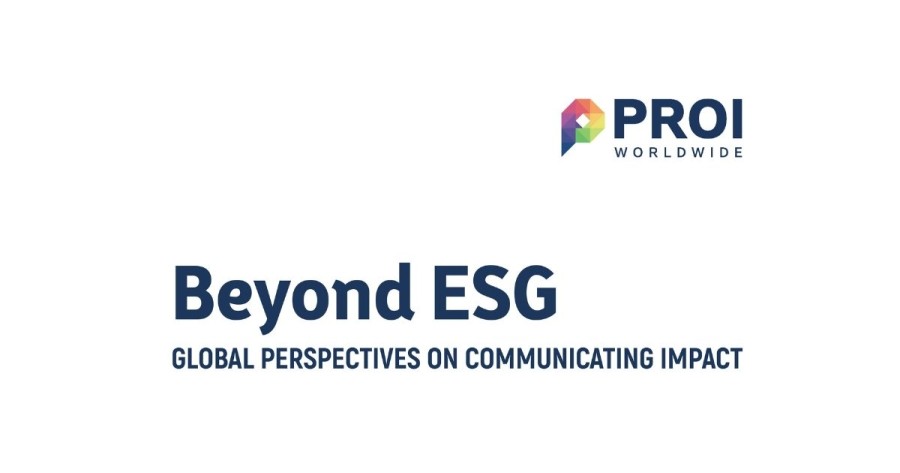Telum spoke with Paolo Alba, Regional Vice President and Philippine Country Lead at PRecious Communications, about the role of PR for startups and its importance in building credibility, attracting investors and establishing a market presence.
PRecious Philippines has developed an offering aimed at supporting the growth of Filipino startups. Could you elaborate on why this focus is a strategic priority for the agency?
Recognising the potential of the Philippines’ rapidly growing digital economy, we launched PRecious Philippines in 2022 to support the country’s emerging tech industries. This expansion reflects PRecious Communications’ ongoing commitment to empowering startup communities across Southeast Asia and fostering innovation and growth in the region. Within a year, we grew alongside startups like Igloo, venture builders like 917Ventures, and all-digital banks like UnionDigital which we support in the Philippines and Southeast Asia.
Within two years, we also diversified our portfolio, which now includes Filipino conglomerates and subsidiaries like Aboitiz Data Innovation and global companies like Visa. Getting to this point was no easy feat. However, it comes with the learning, skills and resources required to adequately support the growth of early to mid-stage startup companies. Seeing the impact we have had on our partners and the communities they serve, I see this as an opportunity to create more synergies and business opportunities within the ecosystem of startup founders, investors and corporations we built.
How does your PR strategy for startups differ from traditional corporate PR, considering the unique needs of early-stage companies?
We understand that early-stage startup companies often operate on limited resources in the beginning. This is where we, as PRecious and the startup, invest in our partnership. That said, we also understand how important it is to develop a strong narrative of the company and the founder.
We work directly with the founder to understand the vision of the company, the pain points that it aims to resolve, and the growth potential of the market and solution. This narrative needs to be compelling and impactful enough to influence investment. As we announce the launch of the solution, we would like to communicate the vision of the founder across relevant and value-adding media platforms. This requires a more targeted and conscious effort to pitch and speak to relevant media outlets that your potential investors are following.
Trust is critical for startups to attract both customers and investors. How can PR play a role in bridging this gap, especially when a startup is relatively unknown?
Trust, in this sense, is not only critical to attract both customers and investors. Without the trust and belief of the press, startup companies would not be able to secure relevant media coverage that highlights their narrative and asserts their brand and credibility. Not to mention, customers and investors only have access to the information carried out in public, making it more crucial to have the proper coverage on these outlets.
For relatively unknown startups, the initial media coverage establishes a foundation for you to communicate your vision. Without it, potential investors and customers would have no means to validate the authenticity of your vision and solution.
Startups in sectors like beauty, tech, or crypto often face unique challenges due to intense competition and rapidly evolving markets. How do you tailor your PR strategies to address the unique needs and competitive pressures of these sectors?
As I tell my team, we can be prepared with communication plans and editorial calendars, but none of this matter if they do not address real-time challenges that the industry our client faces. For startups in competitive and fast-evolving sectors like beauty, tech or crypto, we would pay more attention to our daily monitoring, finding trend-jacking opportunities to position them as the leaders in this space. By staying agile and proactive, we ensure startups remain relevant and competitive, effectively addressing the unique challenges of their market.
In your experience, what are the most common PR mistakes startups make when trying to build their brand, and how do you help them avoid these pitfalls?
There are startup companies that forego communications after their first go-to-market announcement due to limited resources. To a potential customer and investor, the lack of updates about the performance of the company could be interpreted as instability or worse, failure to scale your solution. Meanwhile, the lack of sustainability also makes it harder to establish the startup’s narrative and positioning in the market. Meanwhile, there are startup companies with adequate resources that want to target a broad market when their solution directly targets a niche market.
Alongside missing your actual stakeholders, this also creates misalignments between the agency and client objectives. If it is not addressed upfront, it only leads to misaligned opportunities. In these cases, we would propose a realignment of our strategy early on to ensure that all communications moving forward would support the startup’s objectives at this stage of the company. We are here to advise and realign strategies accordingly.

Feature
Telum Talks To: Paolo Alba from PRecious Communications
by Telum Media
22 January 2025 4:00 PM
5 mins read
Telum Media creating connections
Get in touch to learn more
Next story
Thriving in an AI-driven landscape
You might also enjoy
Moves
Aaron Tan has joined FleishmanHillard as Auto Practice Lead and Account Director, bringing experience across branding, communications, marketing and digital strategy.
Based in Singapore, he has accumulated more than 15 years of experience, having previously held senior roles at agencies including The Ate Group and W Communications.
31 December 2025 2:49 AM
1 min read
Moves
Alexa Cheah has joined W Kuala Lumpur as Marketing Communications Manager. In her new role, she manages the hotel’s brand and communications efforts, including media relations, corporate communications and reputation, events, social media, as well as beverage and food marketing, working alongside the Director of Marketing Communications.
Her prior experience includes roles at Grand Hyatt Kuala Lumpur, followed by Hyatt Hotels in Malaysia, where she contributed to brand campaigns, hotel openings, and cross-property initiatives in the cluster marketing team.
29 December 2025 7:17 AM
1 min read
Research
PROI has released their latest report, "Beyond ESG: Global perspectives on communicating impact". With insights from 11 global communications agencies, the report highlights key trends shaping how ESG and purpose will be communicated in 2026.
Ted Deutsch, Executive Managing Director of RF|Binder and Chair of PROI's ESG Working Group, said: "While certain markets are shying away from acronyms and terms that are seen as overly political, this PROI report confirms that companies are still focused on driving change through sustainability, corporate culture and good governance. The challenge now lies in communicating this with authenticity."
ESG across the regions
ESG maturity differs widely by region. Markets such as Australia, Switzerland, and the Middle East operate in relatively advanced regulatory environments. In Australia especially, Paula Cowan, Managing Director at ImpactInstitute, described ESG as no longer a "nice to have," but rather a licence to operate.
Meanwhile, countries such as Poland and the Czech Republic are experiencing signs of ESG fatigue. As Dirk Aarts, CEO of 24/7 Communication, observed in Poland: "...enthusiasm has cooled. Many businesses now treat ESG chiefly as a regulatory requirement rather than a reputational advantage."
In Thailand, ESG is viewed as central to long-term competitiveness, economic resilience, and access to global markets. Whereas in Ukraine, ESG is shaped by wartime realities and EU integration, with social impact and resilience taking precedence.
Despite their differences, one thing stays consistent: stakeholder expectations are converging. The report highlights how companies are increasingly expected to demonstrate real progress and credible outcomes rather than just showing intent.
Global pressures driving change
It was reported that every region, in one way or another, was being impacted by global forces reshaping their ESG communications. Regulatory alignment stood out as a major driver, particularly around mandates by the International Sustainability Standards Board (ISSB), the Corporate Sustainability Reporting Directive (CSRD), and other international disclosure frameworks.
Trade-related mechanisms, such as the EU's Carbon Border Adjustment Mechanism, have resulted in a push for ESG adoption in export-oriented economies like Thailand. Chelsea King, Head of PR Operations and Editorial Director Midas PR, explained: "This creates direct financial pressure and has spurred Thailand’s domestic carbon tax and mandatory reporting efforts."
Political dynamics also play a significant role, with the U.S. becoming the focal point of ESG politicisation, influencing corporate behaviour across multiple markets. This has contributed to more cautious language globally. For example, in Canada, "...U.S. discourse has influenced Canadian corporate leaders to reconsider how explicitly they use the 'ESG' label," said Kimberly Cohen, CEO of Brown & Cohen.
At the same time, global enforcement action against greenwashing is increasing in Canada, as well as other markets such as Australia, Switzerland, and the UK, reinforcing a shift toward proof-based communication.
Language and framing
The report outlined a clear global trend: the declining use of the acronyms "ESG" and "DEI" in public-facing communications. While these terms remain common in investor, regulatory, and technical contexts, organisations are shifting toward simpler and less politicised language, such as "sustainability," "responsible business," "resilience," and "impact."
Kimberly noted that in Canada, these acronyms are increasingly being broken down into their component parts, whereas in Poland, Dirk explained that the narrative now focuses on health, quality of life, and local community impact - moving away from war language, such as "fighting climate change," toward tangible well-being. This shift doesn't reflect a divergence from ESG principles, but rather as an effort to improve clarity, reduce political risk, and connect more directly with local audiences.
Across several regions, including Canada, the UK, the U.S., Thailand, and the Middle East, an increase in social initiatives continues, but under different labels, such as workforce development, inclusion and belonging, human capital management, and community impact.
Communications challenges
Across all regions, communications leaders are reported to have been facing similar challenges, particularly in balancing ambition with credibility. Stakeholders expect companies to act, but are increasingly rejecting vague or exaggerated claims. Greenwashing, social-washing, and "greenhushing" - deliberately under-communicating progress, which is reported to be rising in Australia - are recurring risks.
Another challenge is internal alignment. ESG data and narratives often sit across multiple functions at an organisation, and when teams are not aligned, messaging can become inconsistent or fragmented, resulting in a lack of trust. In sensitive contexts, such as in Ukraine or politically polarised markets like the U.S. and UK, audiences are sceptical and quick to point out inauthenticity.
Looking ahead
Contributors generally predict that over the next two to three years, ESG communications are expected to become more integrated with financial reporting and core business strategy. Many regions anticipate stricter disclosure requirements, greater use of assurance, and increased focus on governance as the foundation for environmental and social credibility.
Media scrutiny is also intensifying. Investigative reporting on ESG claims is growing, while routine sustainability announcements receive less attention unless backed by data or clear outcomes. At the same time, there is continued demand for accessible explanations, case studies, and stories that demonstrate how ESG efforts deliver tangible benefits to communities, employees, and economies.
Practical guidance for communications professionals
Based on insights across all 11 markets, some common practical guidance include:
- Lead with evidence: Anchor claims in data, defined methodologies, and disclosures, with assurance.
- Adapt language and be precise: Localise messaging and ensure clear messaging that resonates with target audiences, while avoiding unnecessary jargon.
- Show progress over time: Share interim milestones and regular updates to demonstrate momentum and avoid greenwashing or greenhushing.
- Integrate ESG into the business narrative: Position environmental, social, and governance efforts as part of core strategy and operations, rather than a standalone initiative globally.
Find the full report, including in-depth insights for each region, here.
29 December 2025 6:15 AM
5 mins read


